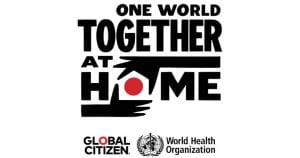I’m sure you will know that there is a world wide pandemic currently happening, COVID-19.
COVID-19 has impacted so many lives and the economy, no one was ready for this catastrophe. As a result of COVID-19 we have been introduced to school online which has its pros and cons. Luckily with PLP it wasn’t too hard of a jump to move to online since we already have the apps and technology to do so. The hard part was not having any social interaction in the class, but at least we could “see” each other. However school still carried on and we begun our first online project, The New Norma which Introduced us to literary dystopias.
You could say we are living in a dystopia right now since the whole world is in panic mode and it is unknown what the outcome of the virus will be. In this project we were assigned a dystopian novel and our task was to analyze how dystopian novels teach us about what is happening now. In my group was Sam, Spencer and Robbie.
Driving Question:
How do literary dystopia help us understand what is happening now?
How we answered the question:
To back track a little before the project we had to define a dystopia vs a utopia. A utopia is your ideal/perfect world, whereas a dystopia is the complete opposite where fear and injustices are present. Before our project started I started watching a dystopian TV series called The Man In the High Castle which is about if the Nazi’s won the war. It is certainly a dystopia!
To fully understand the two terms in small groups we designed and created our own Utopia. There are many aspect to creating a perfect society. You have to think about the laws/rules, punishments, education etc.
Take a look at our ideal world:
I was assigned to read World War Z (WWZ) which was my second choice. I had seen the movie in the past so I already had a understanding of the story line although I was surprised to find that the movie and the book are actually very different.
The movie is told from the perspective of one person during the pandemic, where as the novel has a different take on the story. The novel is told from multiple people with one interviewer trying to write a report of how each country dealt with the virus. The report included the emotional side, “the human factor”. As you could imagine in a worldwide catastrophe people would be scared and confused and those emotions can impact your actions.
Once a week we “met” with our group and discussed the novel as well as shared our journal ideas. The journals were a way to connect our dystopian novels to current events using evidence, and to start thinking about our final product. Overall we completed three journals all connecting to different aspects of the book. There is a lot of misguided information regarding COVID-19 and it was important to do in-depth research. This was really interesting because there is constantly new News coming out everyday and it is important to know what is happening around the world especially in these times when we are all stuck in our homes. I really enjoyed researching about Donald Trump’s new “cure”!
Back to the project! Our end goal was to create a 10 minute presentation as a group that answered the driving question. The presentation could be in any form, keynote, video etc. As I mentioned earlier, WWZ is an interview style. Similarly we wanted to make our presentation an interview. We agreed that a News report with interviews would be more engaging to the audience. Just like WWZ we decided to “interview” people from around the world who have been significantly impacted by COVID-19 emotionally and economically.
Our Thesis:
Literary dystopia, while fictional, can give us insight into the ways human beings react emotionally to a worldwide pandemic.
Many employees or business owners are worried about how the economy will end up as well as unemployment. Our goal of the video was to capture the impacts COVID-19 has had on many different communities. It was also to delve into different perspectives and how people are dealing with this crisis. After some brainstorming we agreed on the following characters:
Interviewer: Me
#1 Pig farmer (Saskatchewan) – Robbie
#2 Medical worker (Italy) – Spencer
#3 Worker in oil rigs (Alberta) – Sam
#4 Protest sympathizer (US) – Robbie
The pig farmer was a side to COVID-19 that I hadn’t thought about until Robbie mentioned it. Basically the farmed animals are fed the left overs from buffets in some places in the US especially in Nevada. The only problem is that all the buffets have been closed due to COVID-19, therefore farmers are having to find other sources of food for their animals. 
In Vancouver we can see how much Alberta is struggling because of how cheap oil is at the moment! Alberta crude oil is a historically low demand since no one is driving as well as the price war between Saudi Arabia and Russia. As you could image an immense large of Alberta’s economy is from oil, and with a low demand means that Alberta is going to have to come up with a new way to build up their economy. The current crisis has exposed the flaw of Alberta relying on oil. Alberta is going to have to economically diversify itself in order to stay stable whether that be looking at more sustainable options.
To enhance the interview, our teacher suggested that we should actually interview someone. So we decided to interview the tour guide they had in Vietnam, Alister. COVID-19 has taken a huge toll on his job since of course no one can travel, so no business. Alister also almost got stuck in Vietnam, he made it out on the last plane!
Here are the questions we asked him:
How did the pandemic change the way you do your job?
What changes do you see happening to your job once the pandemic restrictions are lifted? How do you think travel will be affected?
What does quarantine look like where you are right now?
What is your opinion on the laws surrounding quarantine restrictions? Are they fair or out of proportion?
We know you were trying to get out of Vietnam recently. How much panic was there at the airport?
For the interview a zoom meeting was set up. Unfortunately I had a class at the same time so I couldn’t interview him but I got a run down from the rest of my group. He talked about how at the moment he is unable to work however, they are still able to plan future tour groups and expeditions. To our disappointment the audio didn’t pick up from the call so we were unable to include the interview in our video…
The presentations were really interesting because each group had a unique take on the driving question. Over all dystopian novels can almost give you a scene of hope since they for the most part have a happy ending. I am excited to see what the outcome of virus entails. Will there be more online courses, will business have to completely change paths or will more people always work from home, no one knows.





